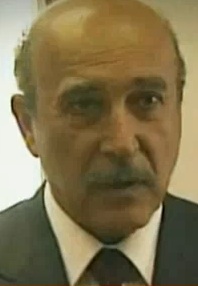Congressional delegation meeting in June 2008 detailed in cable
 A recently released cable describes three congressional delegation meetings with Egyptian President Hosni Mubarak, Egyptian Vice President Omar Suleiman and Foreign Minister Aboul Gheit. The congressional delegation present at the meetings included Rep. Gary Ackerman (D-NY), Rep. Sheila Jackson-Lee (D-TX), Rep. Thad McCotter (R-MI), Rep. Randy Neugebauer (R-TX), Rep. Russ Carnahan (D-MO), Rep. Al Green (D-TX), and professional staff members David Adams, Jamie McCormick and Howard Diamond.
A recently released cable describes three congressional delegation meetings with Egyptian President Hosni Mubarak, Egyptian Vice President Omar Suleiman and Foreign Minister Aboul Gheit. The congressional delegation present at the meetings included Rep. Gary Ackerman (D-NY), Rep. Sheila Jackson-Lee (D-TX), Rep. Thad McCotter (R-MI), Rep. Randy Neugebauer (R-TX), Rep. Russ Carnahan (D-MO), Rep. Al Green (D-TX), and professional staff members David Adams, Jamie McCormick and Howard Diamond.
The meetings described in 08CAIRO1416, on CODEL Ackerman (“congressional delegation”) posted by Norwegian newspaper Aftenposten focused on Israeli-Palestinian developments (the building of a “calming period”), Egypt’s regional relations, and human rights criticisms of Egypt.
The past twenty four hours make the description of the delegation meeting with Suleiman particularly noteworthy. Suleiman, who just announced the formation of a constitutional committee, has come under increased scrutiny as cables are released revealing how friendly he is to Israel.
From the cable:
In a subsequent meeting, EGIS Director Suleiman asserted that the "real threat" is extremism, and underlined what the Egyptians plan to do to combat it - (1) strengthen relations and coordination with the Israelis, (2) support Mahmoud Abbas, and (3) bring the Palestinian Authority (PA) back to Gaza. He opined that Hamas is under pressure, as the Gazan population is very poor and "becoming wild." Suleiman enumerated the benefits of the "calming" period that he engineered as the lack of violence preventing which prevents a further inflaming of Palestinian emotions (and the resultant increase in Hamas´ popularity) due to TV footage of Palestinians injured and killed by Israelis. He also said the "calming" allows for Israeli cities near Gaza to not be threatened. Ultimately, Suleiman hopes that if the quiet period persists, jobs can be found for Gazans, and thus their hope for the future will return. Outlining an overall three-stage vision for the future, Suleiman said first, calm in Gaza must be achieved, to be followed within weeks by talks regarding Shalit´s release. After that, a dialogue will be started about returning the PA to Gaza, using as an incentive the "sweetener" that Rafah will be re-opened, under Israeli and European observation, with the PA in control…
Notice there is nothing specific about easing the blockade of Gaza, which had begun in 2007. Egypt’s role, to Suleiman, is primarily to help keep Palestinians from getting “wild."Suleiman presents himself as someone Israel can depend on to work to develop Palestinian security forces so that the Gazan population can be controlled. [See this document posted as part of the “Palestine Papers” for more on Egypt’s role in the Palestinian security sector.]
Suleiman is keenly aware of how he can mediate conflict in the region because he is part of the Egyptian government.
Throughout the meeting, it seems Suleiman is interested in providing aid to Palestinians but not really interested in advocating for reforms that would afford Palestinians greater civil and political rights. He repeats “throughout the meeting his goal of creating a ‘new atmosphere’ that can "build confidence, keep the region quieter, and give Abbas and Israel a better chance of achieving agreement on final status issues." He said that before the end of the year, the Palestinians and Israelis need to reach some sort of understanding – ‘not necessarily a final agreement, but something tangible’ - on border issues, Palestinian refugees, and Jerusalem.”
Suleiman understands the need to make “family unification” possible and allow Palestinians the right to return. He urges enhanced economic support for Palestinians from the international community. And, he asks that the delegation put great faith in Palestinian Authority leader Mahmoud Abbas and the Palestinian Authority itself.
The recent fifteen percent pay raise for government employees suggest this might be how Suleiman and others in government plan to “calm” Egypt. Compromise skewed to maintain Egyptian government control over the people looks like a tactic that will be employed. Unfortunately for Suleiman, it does not, at this point, seem that the demonstrators are going to be pacified by minor concessions, which don’t really fundamentally change anything.
During the meeting with President Mubarak, it is clear that Suleiman is a man capable of bringing groups together to engage in discussion and come to agreements. Mubarak tells the delegation that “Hamas cannot be trusted, but at least we can try to make them calm for the time being” and observes “‘Gaza is not only Hamas,’ and therefore, he had asked EGIS Director Omar Suleiman to bring the leaders of at least ten Palestinian factions to Cairo for discussions.”
Of the leaders present, two, Rep. Ackerman and Rep. McCotter, are well-known defenders of Israel in the United States. In 2007, Rep. Ackerman condemned the Bush Administration for increasing assistance to the Palestinian Authority. Rep. McCotter criticized the Obama Administration in 2010 for “admonishing the Israeli government” for saying the approval of further settlements was “regrettable.” He and many others in Congress defended Israel saying it has been willing to “advance the peace process—even when its concessions have led to decreased security.
The meetings detailed here (and details on Suleiman in other cables released thus far) all further demonstrate Suleiman would likely do nothing to get in the way of Israeli or US interests if president. Suleiman is a favorable candidate for taking control of Egypt. The problem, however, is the protesters will never settle for Suleiman, no matter how much Congress or the State Department works to get him elected.
Image a screen shot from Al Jazeera English report on Suleiman's appointment to vice presidency.
Theme by Danetsoft and Danang Probo Sayekti inspired by Maksimer